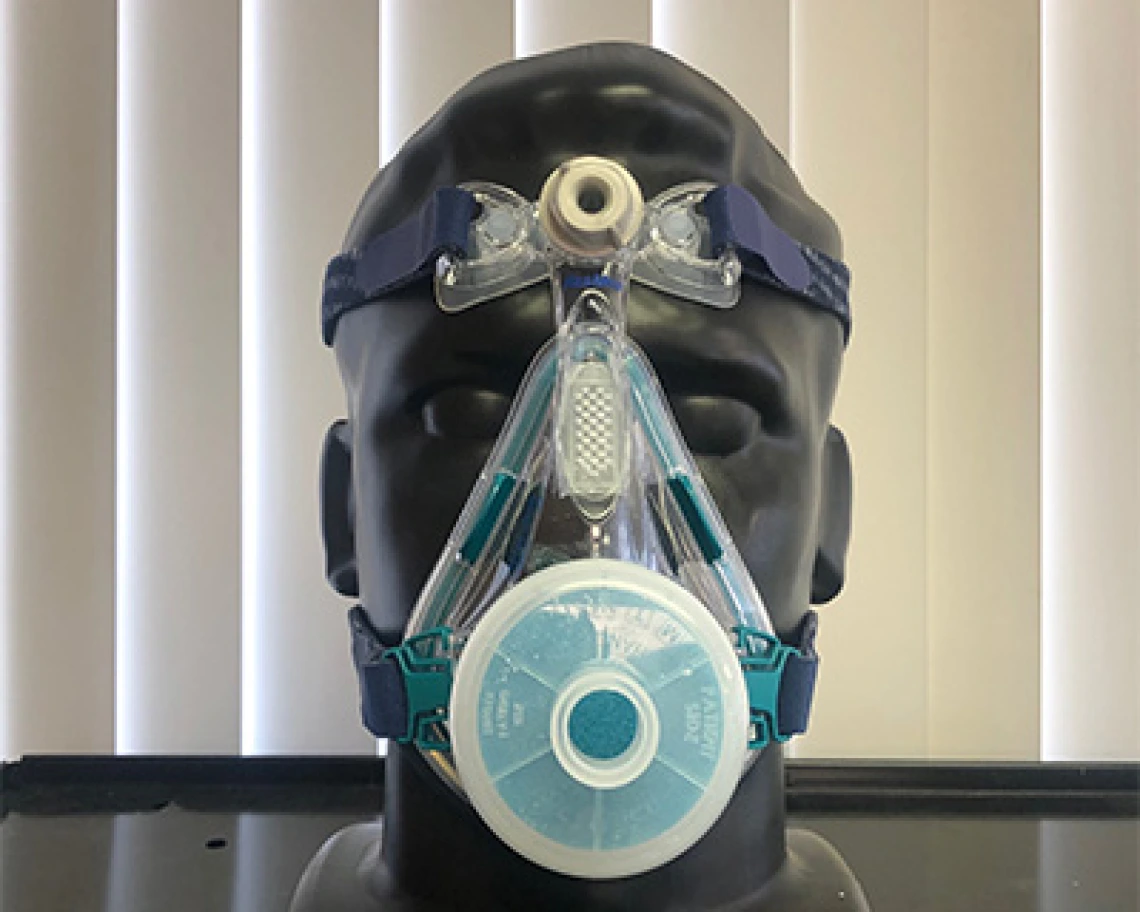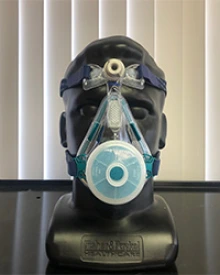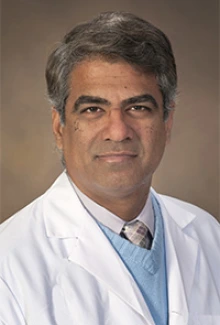UArizona Researchers Team to 3D-Print Medical Masks for Banner
Engineering and health sciences researchers are teaming up to address the shortage of personal protective equipment in Tucson health care facilities.

TUCSON, Arizona — Amid the COVID-19 pandemic, hospitals across the world are running short on personal protective equipment, including N95 respirators – masks that, unlike surgical masks, fit tightly around the face and are capable of filtering out 95% of airborne particles.

In response to a shortage of masks, researchers are working to design, 3D print and test masks for health care workers. Pictured is a mask prototype, fitted on a mannequin.
In response to the mask shortage, a group of University of Arizona researchers is working to design, 3D print and test masks for health care workers at Banner – University Medical Center Tucson.
The team includes Doug Loy, PhD, and Krishna Muralidharan, PhD, of the Department of Materials Science and Engineering in the UArizona College of Engineering, Sairam Parthasarathy, MD, Pulmonary Division chief at the Department of Medicine in the College of Medicine – Tucson, and Armin Sorooshian, PhD, of the Department of Chemical and Environmental Engineering.
Drs. Loy and Muralidharan are working on the design and printing of the masks. Drs. Parthasarathy and Sorooshian, who studies aerosol particles in the atmosphere, will test how well the masks keep out harmful biological particles, to ensure they meet the standards of the National Institute for Occupational Safety and Health.
"We want to design masks that we can print relatively quickly and make them into a form that people will want to use, so it should wear similarly to the N95 mask," said Dr. Loy, who also has a joint appointment in the Department of Chemistry and Biochemistry. "We're finding a lot of designs online that may look good, but they either require the assembly of dozens of parts or they would take forever to print, which drove our decision to take a different approach."
The materials scientists, as well as a group of undergraduate and graduate students, are currently testing out designs and materials for masks using on-campus 3D printing machines. They're exploring the options of creating reusable masks with disposable filters – similar to anti-pollution bicycle masks – and masks that are entirely permeable to air but not biological materials – like N95 masks.
The College of Engineering and the materials science engineering department provided funding to order 10 new 3D printers, which will allow the team to scale up production to 200 masks and 2,000 disposable filters per week.
"These researchers are developing prototypes that could be printed out in communities all over the world facing medical supply shortages," said David Hahn, PhD, Craig M. Berge Dean of the College of Engineering. "We are proud that faculty are working at the intersection of engineering and medicine to rise to the challenge this crisis presents."

Dr. Sairam Parthasarathy, chief of the Division of Pulmonary, Allergy, Critical Care and Sleep Medicine at the UArizona College of Medicine – Tucson
Their work complements efforts by Dr. Parthasarathy to build a mask prototype using U.S. Food and Drug Administration-approved parts. Producing masks locally, he points out, can help Tucson become self-sufficient and less dependent on external pipelines, many of which cannot keep up with demand.
"They say necessity is the mother of invention," Dr. Parthasarathy said. "We have Armin, who can do these sophisticated aerosol measurements, and Doug and Krishna, who have the know-how and the number of students to help create these materials. We've never worked together before, but I think something like this is an example of how there are pockets of support and resident expertise from engineering and health sciences. And now we are coming together to help make this a reality."
The UArizona Health Sciences COVID-19 Resources webpage can be found here.
For the latest on the University of Arizona response to the novel coronavirus, visit the university's COVID-19 webpage.
###NOTE: Photos available upon request.
This story originally appeared at the UA News website.
About the University of Arizona Health Sciences
The University of Arizona Health Sciences is the statewide leader in biomedical research and health professions training. UArizona Health Sciences includes the Colleges of Medicine (Tucson and Phoenix), Nursing, Pharmacy, and the Mel and Enid Zuckerman College of Public Health, with main campus locations in Tucson and the Phoenix Biomedical Campus in downtown Phoenix. From these vantage points, Health Sciences reaches across the state of Arizona, the greater Southwest and around the world to provide next-generation education, research and outreach. A major economic engine, Health Sciences employs nearly 5,000 people, has approximately 4,000 students and 900 faculty members, and garners $200 million in research grants and contracts annually. For more information: uahs.arizona.edu (Follow us: Facebook | Twitter | YouTube | LinkedIn | Instagram).

